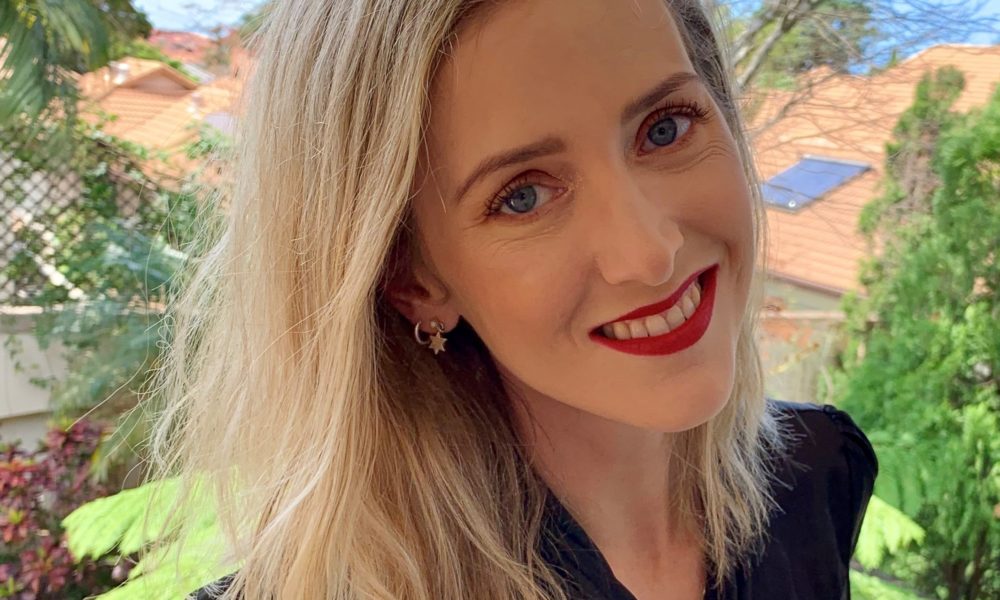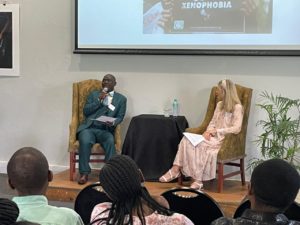OpEds
Durban activists shocked by accounts of xenophobia

“Profound, humbling, and disturbing” was the description of Anglican priest Reverend Canon Peter Houston of the xenophobia dialogue Finding the Voices held at the Durban Holocaust & Genocide Centre (DHGC) on Thursday, 3 November.

The event was a response to the wave of hate and violence building against foreign nationals in our country, and hoped to pass the microphone symbolically and physically to refugee, migrant, and asylum-seeker communities in order for them to share their heartbreaking experiences. The epidemic of xenophobia and Afrophobia in South Africa isn’t just creating deep divisions and mistrust between communities, and profoundly traumatising refugee, migrant, and asylum seekers, it’s tearing apart our social fabric.
Mary Kluk, the director of the DHGC, opened the event with a quote from Menachem Rosensaft, a child of Holocaust survivors who was involved in the establishment of the United States Holocaust Memorial Museum. His words reflect the vision of the DHGC, namely that “Visitors to the museum come not just to mourn the dead but to recognise and learn from the resilience and marvellous human potential demonstrated by the survivors. That the survivors returned to being human beings rather than brutalised victims, humans with hope and aspirations who were able to resume dreaming rather than endure nightmares.” Mary shared, “And that’s what we hope for today. That we’ll be a tiny part of helping people to resume dreaming rather than enduring nightmares.”
The DHGC was opened in 2008 to support the inclusion of the history of Nazi Germany and the Holocaust in the national curriculum, and to create a more caring and just society in which human rights and diversity are respected.
Each year, thousands of school pupils from across KwaZulu-Natal take part in educational workshops; teachers undergo specialised training; and community events are held which use the history of Nazi Germany as an example of how a democratic society can descend into unspeakable atrocity through propaganda and prejudice. The centre’s work explores the past to better understand the power of hateful words to create violent action, and in this way, ensures that the events of the Holocaust and other crimes against humanity don’t happen again.
“We’ve been talking about xenophobia for years and years, but there’s no light at the end of the tunnel,” said Theophilus Mukambilwa, a member of the KwaZulu-Natal Refugee Council since its inception and one of the speakers at the dialogue. “We’ve been trying to work in townships and rural areas because if you look deeply at what’s driving xenophobia, it’s poverty, it’s lack of information,” he said. “People live in fear, people live in a prison. There’s no freedom because you’re afraid.
“As we speak, in Pietermaritzburg, the refugees trading on the street have been removed. Families are suffering, they don’t have food or money for their children to go to school,” said Daniel Byamungu Dunia, a refugee from the Democratic Republic of the Congo and secretary general of the Africa Solidarity Network. His organisation promotes social cohesion with the aim of ending xenophobic attacks in South Africa.
“We’re trying to engage all government structures, but no one is coming forward. There’s only policy, but people are still suffering,” Daniel said. “If the government won’t accept that there’s a problem, we’re not going to be able to resolve it.”
Reverend Mathias Bigirimana, who hails from Burundi and has been in South Africa for 22 years as a senior pastor of the All Nations Ministry in Durban and the chairperson of the Africa Diaspora Pastors Forum, shared his hopes for building social cohesion by creating trust and an emphasis on social justice.
S’bongiseni Vilakazi, the author and executive director of The Valley Trust, a non-profit organisation focusing on community health, shared a South Africa perspective on xenophobia with the audience, which included members of the KwaZulu-Natal Inter-religious Council and Religions for Peace, school principals, members of civil society, and local government as well as the media. He acknowledged the human stories shared, and expressed regret at the behaviour of fellow South Africans. “I feel ashamed,” he said. Vilakazi also read from his own book of prose and poetry titled Who Shall Stand? which ended with a call to see the beauty of those different to us and celebrate the diversity of our country.
The final speaker, Ashleigh Mapendo, a young Congolese woman who is part of the Favor Foundation working with refugee youth who live at Durban’s North Beach, shared harrowing testimony, including the frightening ordeal of being kidnapped by taxi drivers, and the heartbreak of losing friends to violence.
“My friend was killed simply because she was a foreigner,” she said. Ashleigh’s brother, Arnold, spoke of how the brutality he had witnessed as a young foreign national had stolen his childhood and left him feeling hopeless.
Sadly, history has shown us what happens when hate is left unchecked. The DHGC permanent exhibition details examples from Bosnia, Rwanda, apartheid South Africa, and the Holocaust. Xenophobia is discrimination and hatred, and must be condemned and combatted. As educators and Jewish South Africans striving to take the lessons of the past and apply to them to the challenges of today, we cannot sit by silently while xenophobia engulfs our country. The message of the dialogue was loud and clear – that the DHGC centre is a safe space for anyone affected by xenophobia; that we are proud allies of the refugee, migrant, and asylum-seeker communities; and that we’ll continue to do all that we can to raise awareness and combat hate in all its forms.
As the United States Special Envoy to Monitor and Combat Antisemitism, Ambassador Deborah Lipstadt says, “In the fight against hatred and evil, neutrality isn’t an option. There are no bystanders.” We can’t and won’t be bystanders.
- Alana Baranov is a writer and the social justice liaison for the Durban Holocaust & Genocide Centre and South African Jewish Board of Deputies. She’s a steering committee member of the Hate Crimes Working Group as well as the World Jewish Congress’ Jewish Diplomatic Corps.